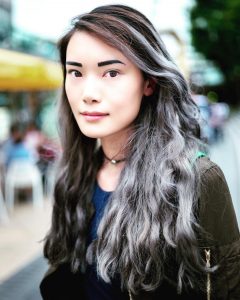Featured: Banking, Sustainable Technology, Healthcare Industry, MBA
Shara Ticku is the co-founder and CEO of C16 Biosciences, which uses microbiology to brew a sustainable alternative to palm oil. Previously, Shara worked at Goldman Sachs before attending Harvard Business School for her MBA. She graduated from McCombs in 2010 with degrees in Business Honors and Plan II Honors, and she credits this combination with building her ability to communicate and work in teams. Read more about Shara’s fascinating journey from banking to healthcare to combating climate change with her own company.
You have held a variety of positions in different industries and now you’re the co-founder for a sustainable technology firm. Can you walk me through where you’ve been and how you got to where you are today?
It’s been really fun. My first job after UT was on the trading floor at Goldman Sachs. I had an internship there one summer in college and really loved it – I loved the high energy of the trading floor, I loved how working in markets requires you to know about all the macro and micro news worldwide, and I had great relationships with my team and clients. But ultimately, I realized that I didn’t fundamentally care very much about public equity market. I spent about a year reflecting on what mattered to me — do I need to be in a job that I’m passionate about? or is a good, fun job enough? Ultimately, I realized it was the former — it was really important to me to spend my days working on something that I cared about, and I’m incredibly lucky that I’m able to pursue something that I love. For me, that meant working in healthcare/biology. I’ve spent most of my career since Goldman working in healthcare — both globally (at the United Nations and the Clinton Health Access Initiative) and domestically (Progyny, a fertility benefits company). Healthcare has been such an interesting market, because I’ve always felt like I was working on market failures. In my work at the Clinton Health Access Initiative, I worked on one market failure: the drug development model and the impacts that has on drug pricing and access worldwide, particularly in developing markets. I got to work with Big Pharma on interesting incentive structures to increase access to basic medicines at affordable prices in developing countries. From there, I was hooked on market failures. When I went to business school, I was interested in another market failure — why is there so much innovation that happens in academic research labs that never gets commercialized? And what are the different levers we can pull to help change that? That’s how I ended up founding C16 Biosciences.
What is c16 Biosciences and what work are you doing there?
C16 Biosciences uses microbiology to produce a sustainable alternative to palm oil. I’m the co-founder/CEO. Why are we working on this problem? Palm oil is the most popular vegetable oil in the world, found in 50% of products on supermarket shelves, in everything from shampoo to Nutella. It’s a $60 billion industry and a really valuable oil. But the industry drives 10% of greenhouse gas emissions each year in order to make palm oil. Over 250 CPGs and 9 countries have made public commitments to stop using “conflict” palm oil, but they’ve failed because there has been no viable alternative until now. C16 Bio makes a bio-based palm oil that’s sustainable, but also competes on cost and quality. We started working on the company about 1.5 years ago and we are hoping to launch our first products within the next year.
What inspired you to start c16 Biosciences?
I actually wasn’t looking to start a company of my own, but rather my co-founders and I came to this problem as humans who saw a big problem in the world. My co-founder Harry and I both had witnessed the negative externalities of palm oil first-hand. I was on a trip to Singapore when I was working at Goldman. Indonesia is one of major producers of palm oil in the world. Each year, Indonesia burns its forest to clear the land and make way for new oil palm trees. That year, the smoke and haze from these forest fires in Indonesia were so bad that flights were grounded, schools were canceled, and pregnant women were not even allowed to walk outside. I didn’t understand how we could accept all of this just to make a vegetable oil. So my co-founders and I dug into the problem and tried to understand why traditional agriculture had not been able to solve this problem in the past. Instead, we asked if microbiology could solve the problem. The three of us believe strongly that microorganisms are the factories of the future, and palm oil seemed like the perfect market. Over 250 companies had made public commitments to replace palm oil, but they had failed to progress toward their goals because the market wasn’t able to produce a viable alternative. When we identified an organism and a production process that could produce a cost-competitive, sustainable alternative to palm, we knew this was something we wanted to spend our time building.
How did you decide to pursue an MBA, and how is your degree informing what you do today?
Considering I had a BBA, I didn’t seek out an MBA for specific skill acquisition. I went to get an MBA for two reasons: to develop my network and to transition from global health/life sciences to domestic health/life sciences. Going to HBS provided me with the platform to pursue a new space, the connections and network to learn about that space and seek out interesting job opportunities, and (most importantly) to spend two years focused on myself. Once you start working, you feel like the race has begun — you’re constantly seeking more (money, advancement, etc.). It’s really difficult to find time to focus on better, which is a real luxury of going to grad school. Getting an MBA wasn’t cheap, but I wouldn’t trade it for anything. It allowed me to hop off the treadmill for a bit, to focus on what is really meaningful for me, and to chase after that dream.
How do you think your Business Honors and Plan II degrees aided you in what you are doing?
The smaller class sizes and interactive natures of the classes definitely help with communication and ability to work in teams. Additionally, I was constantly surrounded by a tight group of incredibly sharp people who challenged each other to constantly do better and be better. But more than anything, I just loved Canfield BHP and Plan II – high quality classmates, small classes, fun topics. I wouldn’t have done it any other way.
Any advice for current students?
Internships are a free chance to learn while building experience. I did internships everywhere from the State Capitol to Wall Street to local magazines. If you’re curious about a field, go try it for a summer or a semester. For so many reasons, it becomes much harder to change paths once you’re out working full-time. Also, most people want to help students – take advantage of your utexas.edu email address to reach out to people and just learn about their job and industry. Spend some time thinking about what you really want out of a job. We spend most of our waking hours at work — and as an early stage startup founder, I work all day, every day. I don’t think about “work” anymore — I think about how I spend my time. It’s worth thinking really hard about what motivates you and how you want to spend most of your days.




 Nancy Lu
Nancy Lu